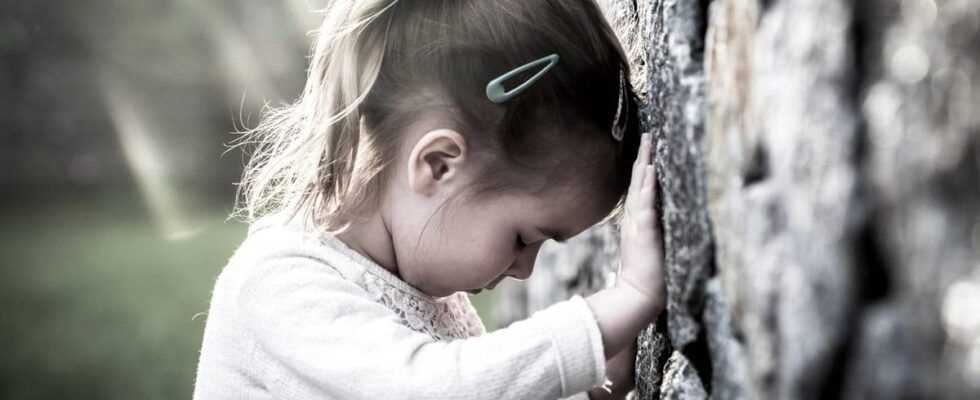A 27-year-old man is said to have sexually abused children in his mother's gazebo in Münster for several years. Together with other perpetrators, he is said to have spent hours on two five and ten year old boys. The deeds were recorded, distributed in encrypted form – and are said to be "only the tip of the iceberg", as the Rainer Furth police chief now suspects. Another victim has already been identified, and a total of seven suspects are in custody.
What remains are not only masses of encrypted child pornography and a speechlessness of the shock. The recordings are said to be difficult to bear for the police officers, they are unimaginable for the population.
The abuse case from Münster is currently bringing out the abysses of society that we normally like to close our eyes to. Because what many people do not want to admit now: child abuse is not an isolated case. We learn this from Rainer Rettinger, the managing director of the German Children's Association. In an interview with BRIGITTE.de, we asked him what we actually don't want to know, but what we need to know. Because only with open eyes, empathy and courage can each individual do something about the abuse of children that takes place every day in Germany.
In each school class there are 1 or 2 children who have experienced or are currently experiencing sexual violence.
The issue of child abuse is often suppressed – what is the reality? Are many children abused in Germany – and what about the estimated number of unreported cases?
"These are sad and frightening numbers: According to crime statistics, 43 children experience sexual violence every day. But these are only the few cases reported. According to WHO calculations, every school class has 1 or 2 children who have experienced sexual violence or just have to experience. There are significantly more girls who are abused, significantly more men than women who abuse, but just to be clear, they also abuse women / mothers. They are children from infancy to late adolescence hardly anyone speaks is abuse of disabled children, it is three times as common as that of non-disabled children! "
Phew. How could I recognize that a child is being abused – as a parent, but also as an educator or other caregiver? Are there specific warning signals?
"Unfortunately, the signs are often not clear. Younger children sometimes tell of their experiences. Many children remain silent but change their behavior, appear very sad or aggressive, withdraw or process sexual violence in the joyless aftermath of what they have experienced. Permanently abused children develop the ability to feel little, and sometimes get out of their bodies unintentionally. A sexual language that is not typical for the age or doctor games with the sexual practices common in adults should also be a reason to take a closer look. Sometimes the perpetrators enter into strikingly close relationships with the child, isolate them from other contacts and emphasize how 'imaginative' the child is. "
Please show civil courage and do not say for fear of false suspicion: 'It is none of my business'.
And what do I do if I suspect it?
"Contact a counseling center that specializes in sexual abuse. You can also do this by telephone and, if necessary, anonymously. You can use the specialist center to advise you on how to speak to the child, or better notify the youth welfare office, family court or the police beforehand Please show civil courage and do not say, for fear of false suspicion, "This is none of my business." Provide clarity and, where necessary, protection and help. "
The majority of the perpetrators are not strangers.
How do I talk to children about abuse? How do I sensitize my own child not to go with strangers to say "no"?
"The majority of the perpetrators are not strangers, they are older adolescents, relatives and acquaintances. The perpetrators are clever and manipulative, they select the children, entangle them and silence them. For younger children, it suffices to point out that it is There are adults who take children by the buttocks or in the pants and every child has the right to get help – there are picture books, for example from Zartbitter (www.zartbitter.de). Make it clear that a child touches every child who doesn't like it, but also tell them to say 'no' to children who can't make it and how courageous you find it when a child or one of his friends entrusts himself and seeks help. "
And how can I raise my child to trust me when he experiences bad things? Even if it feels shame or fear?
"Tell your child how important it is to you to be a parent to whom the child can also come when he is afraid or ashamed. Such situations always occur in everyday life. Appreciate as soon as possible if the child tends to confide in you. If you tend to be angry, "I told you so", at least forgive your child after such scenes. Make it clear that every child has the right to have their own experiences and also to do so push yourself to the limits to get to know them. Offer yourself as a person who will believe in the child and be there for them when they need you – that's what parents are for. "
Thank you for the insightful conversation, dear Rainer Rettinger!
Child Sexual Abuse – What We Should Know About It
You can find out more about this topic in the podcast of our colleagues from ELTERN.de. Vera Falck from Dunkelziffer e.V. from Hamburg talks to Julia Schmidt-Jortzig about alarm signals in children and the best way to deal with suspicions.
